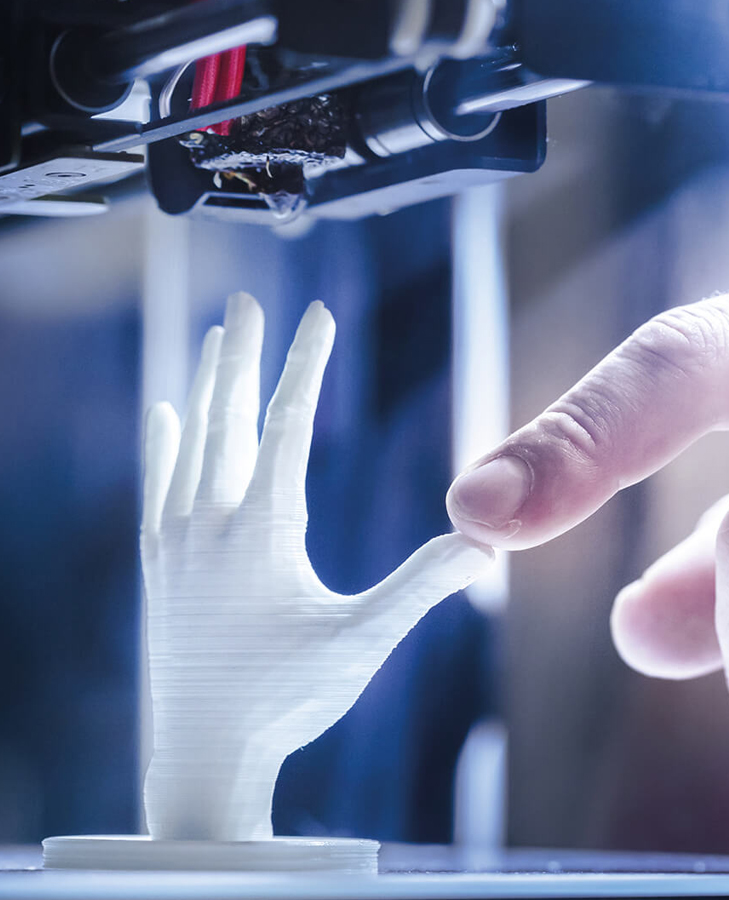By Sanjiv Goyal Featuring Dipak Basu
In this article you will learn about:
- Tech applications in the nonprofit sector
- Altruistic Entrepreneurship
- Purpose-driven 3D Printing applications
- The two keys to entrepreneurial and life success
- Nethope
- Vispala
Bringing Tech to Those in Need
Dipak Basu never had a grand vision. Throughout his life, he has found himself in the right place at the right time. Originally a technologist working in the telecommunications space for Cisco, he started Nethope an alliance of the world’s largest nonprofits and leading tech companies.
Nethope is a space where nonprofits and tech companies collaborate. Sixty IT companies from around the world work with nonprofits to design, fund, implement, adapt, and scale approaches that solve developmental, humanitarian, and conservation challenges.
All of the major nonprofit organizations from the Salvation Army to the WWF to Oxfam, are members of Nethope. At Nethope, competing organizations work together in an atmosphere of co-creation.
His work on Nethope inspired Basu to strike out on his own. He left his job at Cisco and took a risk to start the Anudip foundation. Starting with three centers in 2006 in India it has now grown into over 100 centers that serve 30K students a year. These are village youth with a high school education that the organization preps for jobs in the IT sector with about 70–75% placement success.
Basu stepped down as CEO of Anudip in 2019 and his latest area of improvement is healthcare. His most recent venture is Vispala, an organization that makes low-cost, functional prosthetic arms for amputees in India and other developing countries.
Dipak says he is fortunate to have the opportunity to apply technology to humanitarian missions worldwide.

3D Printing A Lending Hand
For people in developing countries access to modern prosthetics is almost unheard of. Most prosthetics that rural Indians have access to are expensive and outdated, meaning they aren’t functional or light-weight.
Basu was looking to get into the 3D printing space and was hunting for a great application for the technology. He happened on prosthetics and Vispala was born.
“When a person loses their arm they lose about 70% of their livelihood, and the prosthetic arm will restore about 40–50% of that.”
Building a social enterprise in a market ripe for technological innovation, Basu again found himself in the right place at the right time. And all types of people are benefiting from his ingenuity and good fortune.
Curiosity and Passion Lead the Way
Basu is encouraged by the exuberance of his countrymen to better themselves through learning. Education is fundamental to success, but you must be open to learning. Basu notes, “Young people in India are open to learning. Not everywhere are young people as excited to use education to improve themselves.”
Curiosity is integral to growth. Deepak illustrates how our current education system discourages this natural impulse: “You asked these questions like, ‘Why is the grass green?’ and a generation of teachers has beaten the curiosity out of you. Just learn by rote. Learn what I tell you. Open the book.”
He cautions that unless we stay curious and continue to ask questions we will become a world of people who are programmed to do what they are told. This systemic demand to conform squashes the entrepreneurial spirit which thrives on risk-taking and being proactive.
Curiosity is a fundamental trait that we need to develop. It isn’t something that needs to be taught because it is inherent in us from birth. When coupled with passion, it is what motivates us and propels human growth and evolution.
Over the course of my interviews with many high achievers, entrepreneurs, and CEOs I have found that nearly all of them give the same advice: Stay curious and follow your passion.




